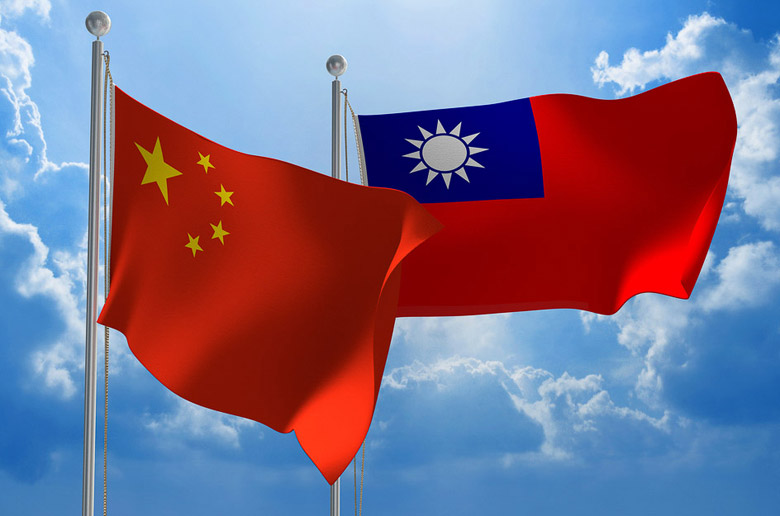Prospects brighten a bit for improved China-Taiwan relationship, Stanford's Asia experts say
The November meeting of Chinese leader Xi Jinping and Taiwanese President Ma Ying-Jeou may not bring dramatic changes in the relationship between the two countries, but it will have at least one lasting effect as Taiwan elections loom in January, Stanford experts say.

Stanford experts on Asia view the recent meeting between leaders of Taiwan and China as setting a precedent for future relations.
In the wake of the recent historic meeting of the leaders of China and Taiwan, the Stanford News Service asked two of the university’s Asia experts about the aftermath of that meeting and its possible effects on political relations between the two countries, the military situation and Taiwan’s Jan. 16 presidential and parliamentary elections.
The first presidential meeting between the leaders of the communist mainland and the democratic island, split by civil war in 1949, was held in early November on neutral territory in Singapore.
Kharis Templeman is the Taiwan Democracy program manager at Stanford’s Freeman Spogli Institute for International Studies. He recently wrote about why Taiwan’s defense spending has fallen as China’s has risen. Thomas Fingar is a distinguished fellow at Stanford’s Walter H. Shorenstein Asia-Pacific Research Center. He served as the chairman of the National Intelligence Council and in other key positions in Washington.
Do you anticipate any lasting effects from the face-to-face meeting of Chinese leader Xi Jinping and Taiwanese President Ma Ying-jeou?
Thomas Fingar: At a minimum, the meeting appears intended by both sides to validate and lock in the much-improved cross-Taiwan Strait relationship that has evolved over the past several years.
Kharis Templeman: I do think the Ma-Xi meeting itself will have one lasting legacy: it has created a precedent for treating the directly elected president of the Republic of China as an equal and as the rightful representative of Taiwanese interests in cross-strait relations. From now on, leaders in Beijing are going to have a hard time arguing that a non-KMT (the Kuomintang, Taiwan’s governing party,) president is illegitimate, as they did during the [former Taiwanese president] Chen Shui-Bian era, or to continue to insist on referring to Taiwan’s leaders as provincial-level officials. So, the next president will come into office somewhat strengthened by that precedent.
Will the meeting have any effect on the January elections in Taiwan?
Templeman: I don’t think it will make much, if any, difference. Taiwanese public opinion is deeply divided about Ma Ying-Jeou’s meeting with Xi. Ma himself remains quite unpopular, the economy is barely growing, and the KMT presidential candidate remains at least 20 points behind in the polls. There’s little indication that this meeting has shaken up what has been a large and steady lead for DPP (Democratic Progressive Party) presidential candidate Tsai Ing-Wen, and I would be shocked if she didn’t win a comfortable victory in January.
Fingar: Probably not. Beijing seems to have learned that its past attempts to influence elections on Taiwan have been ineffectual or counterproductive, and the meeting is unlikely to change minds or votes on the island.
How might the elections affect military spending on either sides, or China’s aggressive island-building for military bases?
Fingar: The meeting will not have any effect on military spending or the building of artificial islands in the South China Sea, but Beijing may have hoped that agreeing to meet with Ma to demonstrate how “good” the relationship is might persuade Washington not to approve another round of arms sales to Taiwan. Regardless of who wins the election on Taiwan, the next administration is likely to seek another round of U.S. arms sales in order to prove that it has the support of the United States.
Templeman: The meeting will have no impact on the security balance in the region. Ma reportedly raised the issue of PRC (People’s Republic of China) missiles within easy range of Taiwan, but Xi claimed, implausibly, that they were not targeted at Taiwan, and that was the end of it. The broader trends are unchanged: the PRC’s military budget is growing annually by double-digit rates while Taiwan’s remains essentially flat. The consequence is that the PRC’s capacity to take coercive measures against Taiwan continues to expand, even as cross-strait cooperation has been improved and institutionalized.
